UN agencies underline need to fortify small farm backbone for food security
By Kapila Bandara
Smallholder farmers, including backyard gardeners and livestocks owners of Sri Lanka are the backbone of the food system, and bolstering their capacity to produce more will help strengthen the resilience of agriculture to avoid the further worsening of hunger, UN agencies working in the country have underlined on World Food Day.
There are more than 1.8 million smallholdings covering 3.64 million acres that involve crops and livestock, some reports estimate. The numbers are certain to have shrunk during the economic collapse. The average holding is 2.04 acres. About 1.4 million grow only crops in an average 1.92 acres each.
The resilience that the UN agencies refer to is about the ability of a food system to resist or return to a normal state during a time of serious shocks and challenges.
On World Food Day, the Food and Agriculture Organization of the United Nations (FAO), highlighted the achievements of Ms Nishanthi Sri Nissanka, a farmer from Hanguranketha who had used ‘Good Agriculture Practices’ to improve production and to support a better environment.
Ms Nishanthi, 46, was one of 21,000 farmers trained in practices that are defined as principles to apply for farm production and post-production processes, to produce safe and healthy food and non-food agriculture products. They also factor in “economic, social and environmental sustainability”.
In a video, she says she uses less fertiliser, the yield is better, and that she can grow multiple crops, about four times a year.
Small-scale dairy farmer Mr H.M. Jayalath, a father of two from Balaharuwa village in Thanamalvila, and Ms Sriyani Kusumalatha, a mother of two in Nugagolla in Wilgamuwa division were also highlighted. Ms Kusumalatha is one of 59 school meal producers since 2020 in Wilgamuwa supported by the WFP’s ‘Home Grown School Meal Programme’. She grows fruit and vegetables and also keeps a few hens. Mr Jayalath, got technical and financial help from the International Fund for Agricultural DevelopmentI. He has six dairy cows and a small rubber plantation.
Sri Lanka is facing acute food insecurity due to a confluence of factors including an unprecedented macroeconomic crisis, bankruptcy, and large-scale political as well as public and private sector corruption. Acute food insecurity is when the lack of food threatens lives or livelihoods, regardless of the causes, context, or the duration. About 8.7 million, or 39.1% do not have an adequate diet, a UN survey found.
Food production has nearly halved following failures of two consecutive growing seasons because of reckless decisions on fertilisers and agrochemicals made by ousted leader Mr Gotabaya Rajapaksa between May 6 and November 2021, and Mr Mahindananda Aluthgamage, the one-time agriculture minister who bungled “organic’’ fertiliser imports from China and India amid accusations of multi-million dollar graft.
In September, in a joint report on crop and food security in all provinces, the FAO and the United Nations World Food Programme (WFP) warned that more than 6.2 million Sri Lankans, making up 28% of the population, are “estimated to be moderately acute food insecure and 66,000 people to be severely acute food insecure’’. The food security situation could worsen between October and
February 2023 without imports of rice and other food, the report said.
The International Fund for Agricultural Development, Country Director for Sri Lanka and the Maldives, Ms Sherina Tabassum, noted the fundamental role of smallholder farmers in guaranteeing food security for a community and for a country.
“Our goal is to ensure that the backbone of our food system – smallholder farmers – are prepared for, and can overcome, the devastating effects of the (coronavirus disease) pandemic, climate change and other external shocks. We are committed to continue our work with the government to sustainably transform Sri Lanka’s food systems so everyone can benefit.”
The FAO's Officer in Charge in Sri Lanka, Mr Gerard Rebello, also highlighted the need for urgent action to safeguard the most vulnerable and marginalised communities from the impacts of the crisis, a statement said.
“WFP has begun its emergency operation to provide food and nutrition assistance to 3.4 million people. We are also continuing to work with smallholder farmers to make food systems more robust and resilient to climate-induced shocks so that food goes uninterrupted from farm to table, even during times of crises,” he said.
On September 28, the United States Permanent Representative to the UN Agencies in Rome, Ambassador Cindy McCain wrapped up a two-day official visit to the North Western and Central Provinces. The United States assistance through the FAO and WFP during the crisis is nearly US$239 million (Rs 87.33 billion).
Ms McCain visited a school garden supported by FAO in Kuliyapitiya. It is one of 100 such gardens set up by FAO and estimated to support 20,000 to 30,000 vulnerable households.
FAO, IFAD, and WFP together with the United Nations system in Sri Lanka are continuing to provide emergency cash assistance, essential fertilisers, and livelihood support to the most vulnerable.
The FAO is providing more than 15,000 smallholder farmers with fertiliser packs in five of the poorest districts, among other things. FAO aims to help another 116,800 small holder farmers with fertiliser. Cash transfers have been given to about 7,000 small-scale marine artisanal fishers, while 8,700 smallholder green gram farmers are being trained to help improve yields.
Among the smallholder groups is the Sithamu Ranliya Female Farmer Organization in Kandy, a project funded by the Global Environment Facility and implemented by the FAO. Some women have built up economic home gardens by planting high-value crops such as vanilla.
The FAO has also supported the restoration of 7,600 hectares of degraded land (known as mudu bim) in the Central Highlands by introducing sustainable land management ideas.
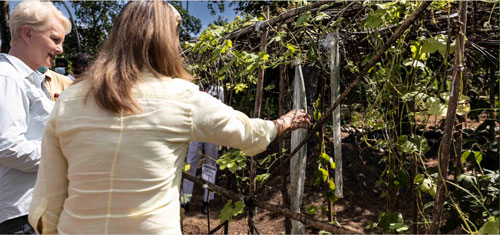
The United States Permanent Representative to the UN Agencies in Rome, Ambassador Cindy McCain and Ms Julie Chung, the United States Ambassador to Sri Lanka visit a vegetable garden at Sri Rewatha Primary School in Kuliyapitiya in September. The project is supported by the Food and Agriculture Organization of the United Nations to strengthen food security in the community.
-
Still No Comments Posted.



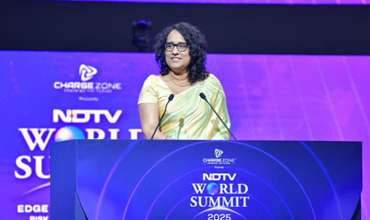





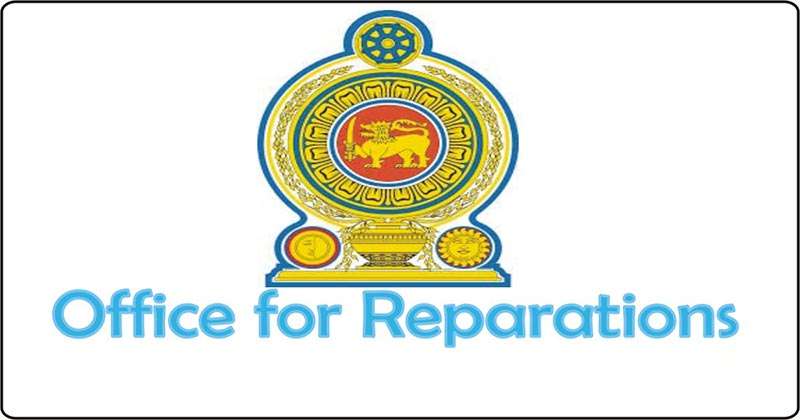

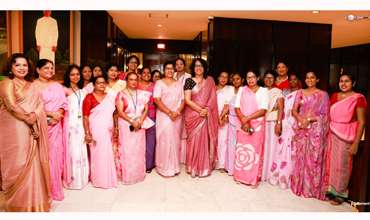
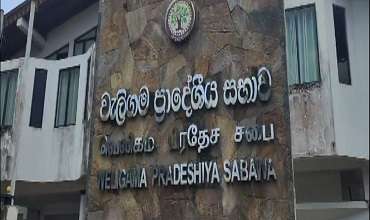
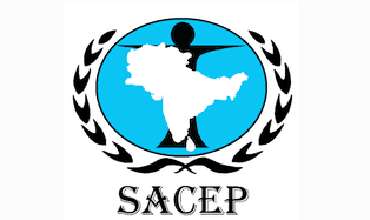
Leave Comments